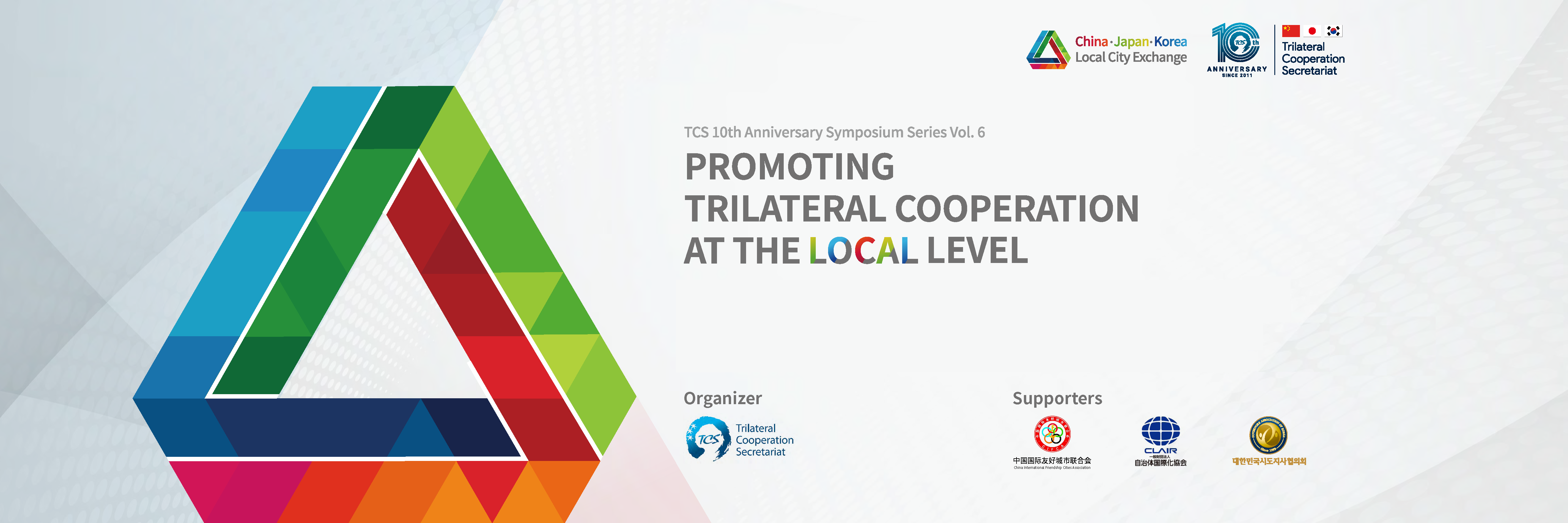
2. Background of exchanges
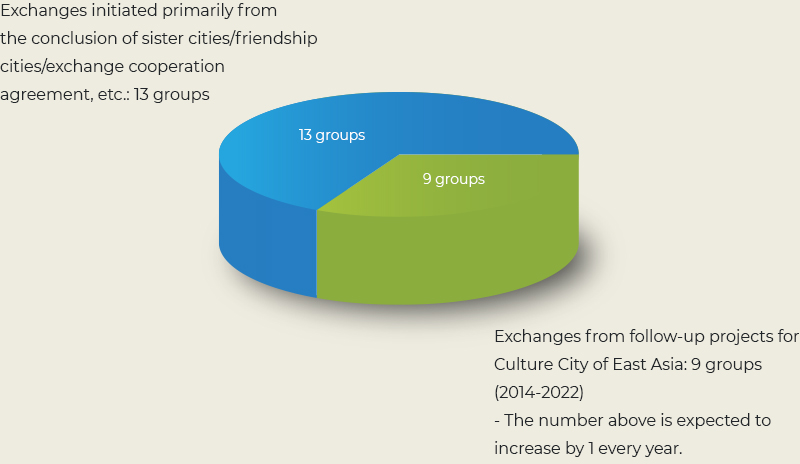
3. Areas of exchanges
The sum of the numbers below does not match the actual sum of the number of trilateral city groups, as a single project can contain 2 areas or a single city group can be engaged in multiple areas. The number of exchanges with the purpose of promoting mutual understanding among the citizens of the three countries with cultural or sports programs is relatively bigger than that of exchanges promoting economic and environmental exchanges.
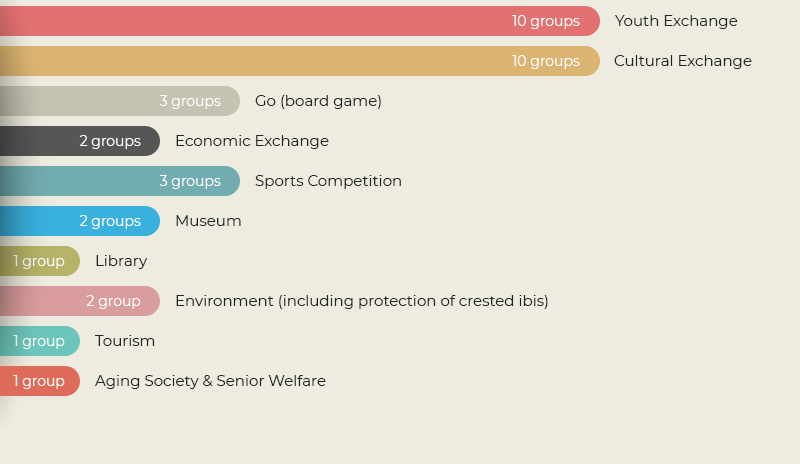
4. Classification of Exchanges by Generation
The sum of the numbers below does not match the actual sum of the number of trilateral city groups, since one group can be engaged in multiple programs. Most of the programs target adults, and youth exchange programs usually target middle school students and above.
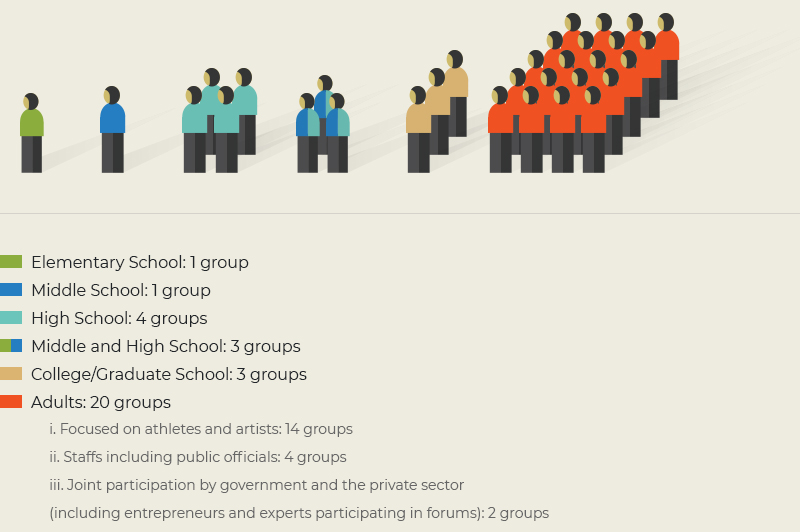
5. Level of Participating Local Government
Half of the 22 trilateral city groups belong to the category “City/County Level”.
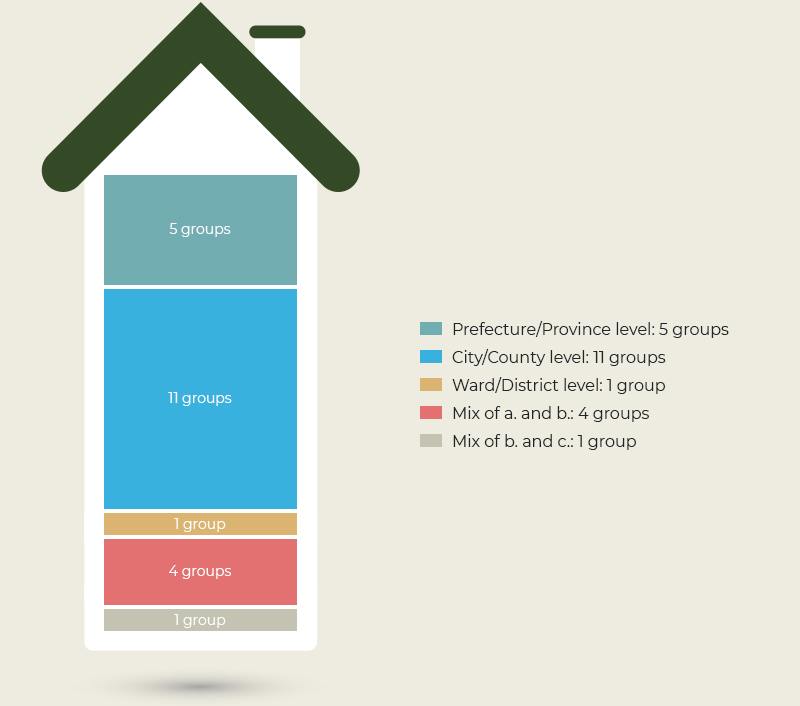
6. The Commencement Year of the Exchange
A number of CJK local exchanges began during late 1990s or after 2015. The first CJK Trilateral Summit was held in late 1990s. The main reason for increases after 2015 is because CCEA, which began relatively recently, increases one group every year. Many CCEA continue exchanges until today.

7. Venue of Exchange: Rotational or Fixed
Most exchange programs, on the basis of equal participation, are held on a rotating basis (except follow-up projects of CCEA). Most of the follow-up projects of CCEA are held in a way that each city holds youth or cultural exchange programs and the two other partner cities participate in them.
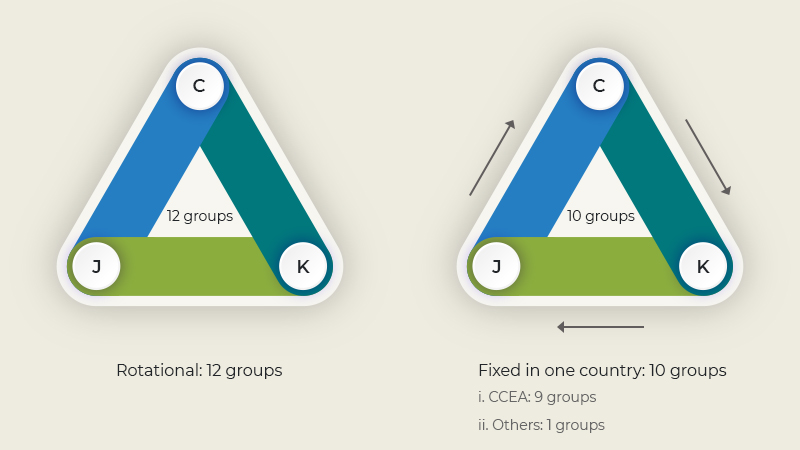
Our database may not include all of the existing cases. Please contact us at tler@tcs-asia.org, if there are groups or cases of China-Japan-ROK local cities exchange not introduced on this website.
-

Summit
-

Agriculture and Fishery
-

Audit
-

Consumer
-

Culture
-

Customs
-

Disaster Management
-

Economy and Trade
-

Education & Youth
-

Environment
-

Finance
-

Foreign Affairs
-

Forestry
-

Health
-

ICT
-

Intellectual Property Rights
-

Local Government Exchange
-

Nuclear Safety
-

Personnel
-

Regional Policy
-

Science and Technology
-

Security
-

Sports
-

Standards
-

Tourism
-

Transport and Logistics
-

Water Resources
-

Think Tanks

